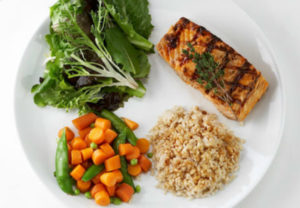The high-protein diet has been a very relevant trend in recent years. However, behind the possibility of losing weight in a short time there is always the risk of serious contraindications for the body. In order to stay healthy and balanced, our body needs different nutrients. When the right proportion of foods is unbalanced in favor of one or the other, multiple problems can arise.
High-protein diet: contraindications
Protein is of fundamental importance for some functions of our body. They are a source of energy, strengthen the immune system and are indispensable for the proper functioning of the muscular system.
 However, protein intake must be kept within certain parameters, both to avoid deficiency and to avoid surplus. The daily dose is indicated between 50 and 62 grams of protein. If you break down in excess, as it could happen in a high-protein diet, the first contraindication interferes with mood because there is an inversely proportional correlation between protein intake and brain levels of serotonin, the neurotransmitter responsible for the feeling of well-being.
However, protein intake must be kept within certain parameters, both to avoid deficiency and to avoid surplus. The daily dose is indicated between 50 and 62 grams of protein. If you break down in excess, as it could happen in a high-protein diet, the first contraindication interferes with mood because there is an inversely proportional correlation between protein intake and brain levels of serotonin, the neurotransmitter responsible for the feeling of well-being.
More protein means less carbohydrates and consequently there is a drop in sugar in the brain. Carbohydrates are the main source of energy for our brain, the reduced intake has the immediate consequence of a serious concentration difficulty.
High-protein diet and halitosis
The excess of proteins also determines the formation of ketone bodies. Ketone bodies can be defined as toxic substances generated by the body when it is forced to recover the energy supply from other sources other than those of food. For example, if the body needs glucose and cannot get it from proper nutrition, it will recover it from the energy sources (glycogen and lipids) present in the muscles and liver. This process involves widespread malaise.
Not only that, a high-protein diet also affects the proper functioning of the kidneys. The excess of proteins increases the formation of uric acid which depositing in the kidneys increases the risk of kidney stones.
At the oral cavity level, we can say that a high-protein diet increases the acidity inside the mouth. In this case halitosis is caused by the indiscriminate proliferation of bacteria in the oral cavity. The bacteria, in turn, release volatile sulfur compounds, a sort of sulfur-based gas, the main cause of foul-smelling breath.
As you may have noticed, the problems associated with a high-protein diet are manifold, clearly avoiding them does not mean, on the contrary, gorging on bread and pasta.
The solution is always a balanced diet, with a balanced intake of carbohydrates and proteins. The only way to maintain psychological well-being, concentration, the right amount of energy and nevertheless a breath that will not cause you any embarrassment.









